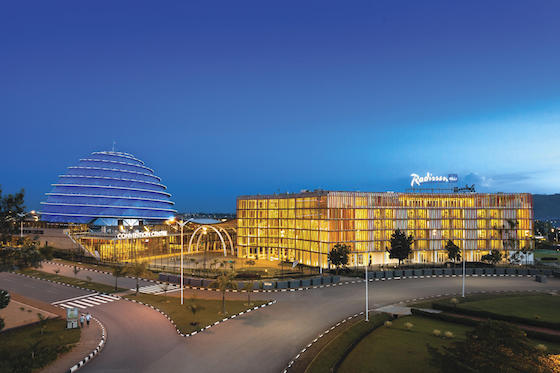“I always call Africa a land of goldmines and landmines. You just need to know how to manage the landmines,” says Saurabh Chawla, chief development officer, Louvre Hotels, Paris. So it goes in Africa, which has hotel development stories about as diverse as its 54 countries.
Those stories vary greatly depending on the stage of the supply cycle. While secondary markets with increasing demand in Kenya, Ghana and Nigeria have longer runways for development, markets like Nairobi and Kigali, for example, have quickly become oversupplied.
Overall, the future of the sector on the continent is encouraging with a rising middle class, increased access by Africans to air travel and gaps in hotel product across the region. Yet this must be tempered by the more recent slowdown of the commodity cycle in various coastal and resource-rich countries, and the infrastructure deficit across the board.

What is most clear: Opportunities exist in secondary cities for economy and midscale products, as well as at leisure beach destinations. South Africa and Nigeria still generate more than 50% of sub-Sahara’s GDP and remain the top development markets for the likes of Carlson Rezidor Hotel Group, Hilton Hotels & Resorts, AccorHotels and Marriott International, as well as local stalwarts Tsogo Sun, City Lodge and Protea Hotels (now owned by Marriott International). But take note, Africa is not without its homegrown upstarts with good product. Get used to reading about Mangalis (fresh product appealing to Africans), Onomo (focused on the mid-market), CityBlue (for midsize owners who need services) and Azalai (West African brand), among others.
Focus is shifting to middle-market products, according to Carlson Rezidor’s senior vice president for business development in Africa and the Indian Ocean, Andrew McLachlan. He points to Nigeria and its 12 state capitals as well as second-tier cities as having a lot of potential for Carlson’s Park Inn by Radisson brand. In fact, Park Inns are under development in four second-tier Nigerian cities, and he says the same is happening in Kenya and Ethiopia.
The caveat, McLachlan says, is that the secondary city hotels must have reasonable access to support the product, good regional air lift and the ability to draft business from nearby, bigger hotels (in Carlson’s case, the Blu brand).
Michael Collini, vice president of development in Africa for Hilton, says his team has identified about 150 targets with just under 50% of them being good fits for the mid-market Hilton Garden Inn brand. “It’s the single, strongest opportunity to build in Africa – both in primary and secondary markets, and even some mature tertiary markets,” he says.
Hilton is also using modular construction, as it has a strategic agreement with China’s largest container shipping company to deliver guestrooms and corridors. “We have one we are about to construct at the airport in Ghana,” Collini says. “The continent is ripe for it given the challenges we expect to see outside more mature markets. About 50% of growth will come from Hilton Garden Inn, and I don’t see why 50% of that can’t be modular.”
Construction is likely the best way forward. “The biggest challenge we find is quality product for conversion,” says Chawla, whose Louvre brands have 40 with 6,650 keys trading and 22 hotels opening within 12 months. “It is not ideal and in many cases existing hotels don’t meet health and safety standards, or the quality of construction is inferior.”
No matter the size of the opportunities, these regional players have to be careful of the pitfalls of a still emerging hotel space. Wolfgang Neumann, member of the board at Rezidor Hotel Group and former CEO, urges patience to overcome knowledge gaps, bureaucracy and compliance issues. “Everything takes longer in Africa, from building to opening, to training, import of goods, licenses, etc.,” Neumann says. “Be ready and have this built into your opening/pre-opening cashflow planning.”
Neumann also warns that many local African developers are new to the hotel game and need assistance and education about building an opening. “One must be closely connected to the owners and key people, and be ready and willing to assist/help,” he says.
McLachlan adds that developers should use turnkey construction contractors that agree to fixed times and prices to avoid delays and interest cost rollups that can as much as double the price of development. “If planning takes longer, it is worth it, and don’t succumb to pressure to start construction too early and end up with a bad project that may need to be torn down,” he says.

